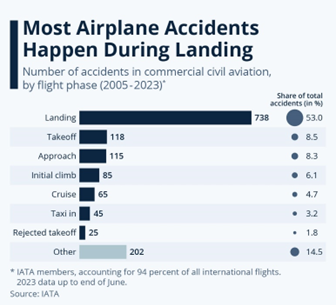TAG: GS- 2: HEALTH AND GS- 3: SCIENCE AND TECHNOLOGY
CONTEXT: The World Health Organization (WHO) continues to classify mpox as a “Public Health Emergency of International Concern” (PHEIC) amidst ongoing outbreaks, particularly in Africa, and the emergence of clade I mpox cases in other countries like Canada. This high alert underscores the global health threat posed by the disease and the challenges in managing its spread.
EXPLANATION:
About Mpox (monkeypox):
-
- It is a viral zoonotic disease caused by the monkeypox virus.
- The first human case of mpox was recorded in 1970 in the Democratic Republic of the Congo (DRC).
- There are two known types (clades) of mpox virus — one that originated in Central Africa (Clade I) and one that originated in West Africa (Clade II).
- Symptoms: Common symptoms of mpox are a skin rash or mucosal lesions, which can last 2–4 weeks accompanied by fever, headache, muscle aches, back pain, low energy, and swollen lymph nodes.
- Transmission: Human-to-human transmission of mpox occurs through direct contact with body fluids, lesions, prolonged face-to-face contact, including sexual contact, and indirect contact with contaminated clothing or bedding.
- Treatment: There are no specific treatments for monkeypox virus infection. Early and supportive care is important to help manage symptoms and avoid further problems.
Current Developments:
Outbreak Scale in Africa:
-
- Over 46,000 suspected cases and 1,000 deaths have been reported, predominantly in the Democratic Republic of Congo (DRC).
- Children are significantly affected, with a 130% rise in cases among those under 18 in Congo.
- Children are also at a higher risk of mortality from the more infectious form of mpox first identified in eastern Congo.
First Clade I Mpox Case in Canada:
-
- A travel-related case of clade I mpox was confirmed in Manitoba, Canada.
- The individual contracted the virus in central/eastern Africa and is in isolation.
Vaccine Authorization for Children:
-
- WHO approved the first mpox vaccine for children aged 1 year and older, developed by Japanese company KM Biologics.
- Japan pledged to donate 3 million doses of this vaccine to Congo, though deliveries are yet to be confirmed.
- Previously, WHO had approved the Bavarian Nordic vaccine for adults, with conditional use for children and pregnant women in emergencies.
Efforts in Vaccination:
-
- Approximately 50,000 people in Congo have received the Bavarian Nordic vaccine.
- The KM Biologics vaccine is expected to address gaps in immunization, particularly for children, one of the most vulnerable groups.
Disease Spread and Response:
-
- Cases in Congo’s epicenter are stabilizing, but infections are increasing in neighboring countries like Burundi and Uganda.
- WHO’s focus remains on resource allocation, vaccine accessibility, and public health awareness.
Implications
-
- Global Preparedness: Mpox’s designation as a PHEIC reinforces the importance of surveillance, vaccine distribution, and international cooperation.
- Vaccination Challenges: Timely vaccine delivery and equitable distribution remain critical, especially in resource-limited settings.
- Emerging Risks: The spread of clade I mpox highlights the interconnectedness of global health, requiring vigilant monitoring of travel-related cases.
Way Forward
-
- Strengthen global and local vaccination efforts, especially targeting high-risk groups like children.
- Enhance healthcare infrastructure in affected regions to manage cases and reduce mortality.
- Foster global partnerships for equitable access to medical resources, diagnostics, and vaccines.
Source:
Spread the Word

